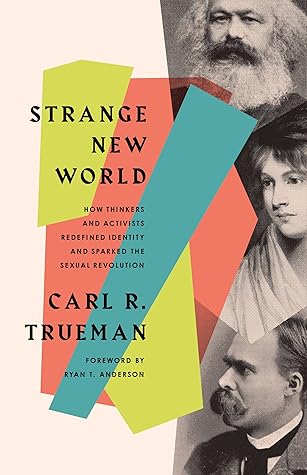More on this book
Community
Kindle Notes & Highlights
Read between
October 12 - October 23, 2023
They are important because they represent an impulse in the modern world that tends to see sophisticated society as corrupting and to regard instinct, or that inner voice of nature, as possessing significant authority. This may be an intuition in contemporary society, something we simply feel rather than upon which we consciously reflect. But it is all around us and lies behind the way in which authenticity has become a dominant theme in attitudes to what constitutes personal integrity.
Thus, looking at Rousseau and the Romantics allows us to see the significance, and the tacit assumptions, of the culture in which we live.
Given all this, we can see why the foul-mouthed politician has supplanted the polite and reserved one, because in a world where the inner voice is key to the real person, the former is authentic while the latter presents a public image likely at odds with his private behavior. More pointedly, the trans person who was born male but claims to be a woman is to be lionized because that is an act of courage and honesty whereby the outward performance is finally brought into line with the inner reality, despite what society might say about such. All of this derives from authorizing—indeed,
...more
The modern self is not simply one that sees inner feelings as authoritative; the modern self also largely rejects the idea that human nature has any intrinsic moral structure or significance.
The real question of human nature goes beyond basic biology; it really demands that we address questions of, say, morality and purpose. Does human nature carry with it a moral structure and a specific end or purpose that remain constant over time and to which we must conform ourselves in order to flourish? Or are we simply the stuff of which we are made and beyond that free to be or do whatever we so choose?
One implication of this understanding of human identity and relationships is that all forms of human community become political. Everything, from the village sports team to trade unions, draws its ultimate significance from the role it plays in the economic (and thus political) nature of society. Another foundational concept, at least for the thought of the early Marx as expressed in what are now called his Economic and Philosophical Manuscripts of 1844, is that of alienation. Alienation at its simplest refers to that feeling that leaves us at odds with our surroundings. An example might be
...more
For Marx, alienation is specifically connected (as the first point above would imply) to human beings in relation to economic considerations.
Alienation provides the background to Marx’s critique of religion. As a man of the Enlightenment, he has no doubt that religion is false and that the Christian God does not exist.
Marx, however, would see such a belief as mystical nonsense. For him, these imperatives are the means by which the middle-class employers make sure that their workers are the kind of people who make up a stable, sober, obedient workforce. And he would interpret the grounding of these imperatives in religious arguments simply as a manipulative way of granting them an absolute moral authority that cannot be challenged.
To put it bluntly: if religion is one major means by which the current unjust set of economic relations is maintained, then at the heart of any drive to transform society must lie a pungent and effective criticism of religion.
We should note three things here. First, Marx regards religion as a human creation with no transcendent status and no necessarily abiding significance. At its most positive, religion fills a psychological need: the pain and suffering that economic alienation causes are alleviated by the false hope of a life of eternal bliss hereafter, where all wrongs are righted and peace and justice prevail. Second, this not only meets the psychological needs of the workers but also works in the interests of the bosses and factory owners because it enables them to bear their present woes and not rise up in
...more
In short, Marx lays the groundwork for some of the most basic of our culture’s contemporary intuitions: Religion is a sign of intellectual weakness in its adherents and a means of social oppression for its proponents. Further, freedom can be achieved only by the abolition of religion.
Of course, few today have read Marx himself, but these ideas have in many ways infiltrated the cultural imagination in which religion is instinctively regarded as both childish and oppressive.
We should also notice in closing that Marx’s claim that all human social relations are economic relations has one more significant result: all human social relations must therefore be political because they all serve the status quo.
There is nothing in this world where human beings can relate to each other that is not a potential arena of political conflict, because all areas of life connect to the overall economic structure of society and thus to society’s inequalities and injustices; and Marx should be given much of the credit for laying the theoretical foundations of that.


